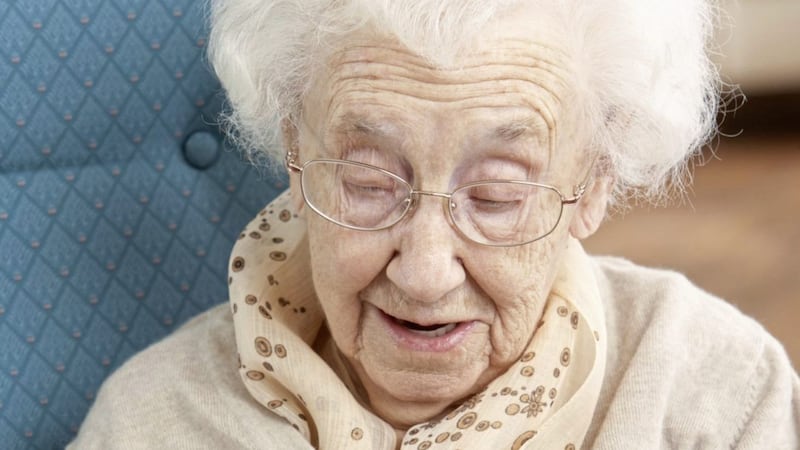Care home staff are "very tired and very worried" amid the second wave of the coronavirus pandemic, a group representing care providers has said.
Stormont's Health Committee heard today that morale is low among workers who fear that the "system is now working against" their efforts to keep Covid out.
Pauline Shepherd of the Independent Health and Care Providers outlined concerns around "no safety net" of re-testing residents on returning to care homes from hospital, staff shortages and increased visitors.
She said Department of Health guidance for care partners for residents to be in place by November 5 left staff feeling very worried that the work they were doing to keep the virus out could be jeopardised by increased footfall.
Earlier this week Health Minister Robin Swann expressed concern about the spread of the virus in care homes, revealing that there are outbreaks at more than 80 facilities.
Ms Shepherd welcomed comments by Mr Swann and the chief social worker Sean Holland making clear to the public that it is "impossible" to keep Covid out of care homes when it is being transmitted within the community.
Outlining concerns within her sector, Ms Shepherd said not all the health trusts have discharge pathways to accommodate those who have tested positive for Covid.
Testing is required 48 hours between discharge from hospital to care homes, but results are not always available within that timeframe, and new or returning residents are isolated for 14 days.
"There is no universal approach, no safety net of re-testing residents discharged after the four to seven days to ensure that they have not contracted the virus in hospital," she told MLAs, adding concerns that patients discharged to their own homes where they receive domiciliary services are not being tested.
She said care home staff are tested every 14 days and residents every 28 days, but there have been "considerable problems" with delays to results, IT system and courier services.
"In the past week there has been an improvement in results turn-around but as there is more testing being carried out, there remains a concern about the capacity of the system to deliver going forward," she said.
Ms Shepherd also described reduced staffing levels due to isolating and lack of child care at a time when staff are expected to perform additional tasks around testing and visitors.
"Staff shortages are a challenge to cover and agency staff are being used as considerable additional cost," she said, adding concerns have been voiced about agency staff moving around the system.
"Problems attracting new recruits are also occurring with a number of our members stating that there has been a very poor response to recent recruitment campaigns.
"That is becoming a critical concern for us."
Ms Shepherd said current restrictions on the public are "putting serious pressure on residents and families", and "having an detrimental impact".
She also voiced concern around resourcing and funding for the care home surge plan is "not in place across all stakeholders" and there is no surge plan for home care yet in place.
Turning to personal protective equipment (PPE) Ms Shepherd said it continues to be supplied by health trusts, and there are "no recent concerns about availability".
The evidence came during a session on the committee's inquiry into Covid-19 and its impact on care homes.
The committee later heard from Mr Holland and chief nursing officer Charlotte McArdle.
They both paid tribute to the "incredible work" of care home staff throughout the pandemic.
Professor McArdle described care homes as illustrating the "tightrope", balancing quality of life with protecting life.
She acknowledged that restricting access for residents can be "hugely detrimental to them", adding that "locking residents away from their families" is "not sustainable or at all tolerable".
She told MLAs that the department is considering adopting a "a risk-based approach" to visiting "to have a meaningful connection".
Mr Holland outlined support for care homes, including the supply of more than 42 million items of PPE to the value of £14 million and 26,000 hours of staff time during the first stage of the pandemic.
He also welcomed new funding of £27 million announced for care homes on Wednesday.
Addressing testing, Mr Holland said discharge is "an area we continue to consider and keep under review", adding that they want to ensure care home residents are not held in hospital longer than they need to be as that also "entails risks for them".








